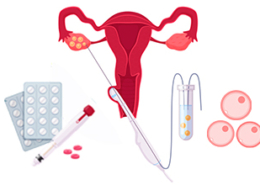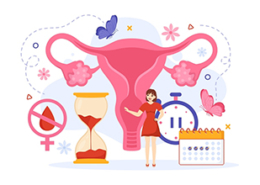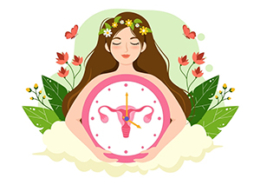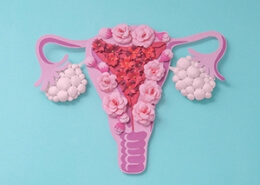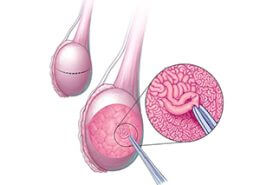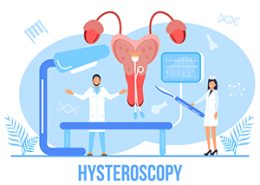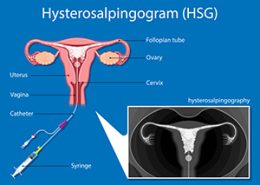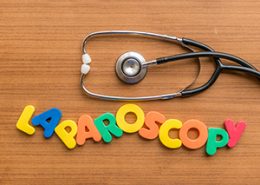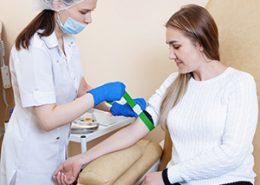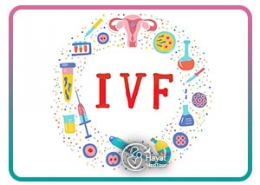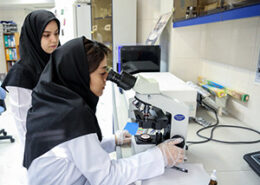11 Tips to Increase Your Chances of IVF Success
You may need to use assisted reproductive techniques to fulfill your dream of becoming a parent. You need to know that you are not alone in this way. Research shows that one in eight couples needs to use infertility treatments such as IUI, IVF, ICSI, and donated eggs to conceive. IVF is a common method of assisted reproduction in which the egg and sperm of an infertile couple are fertilized in vitro and two or more healthy embryos are transferred to the mother’s uterus for further development. The chance of IVF success in women younger than 35 ages is between 35% and 40%, while as the mother gets older, the chance of IVF success decreases.
In addition to age, lifestyle improvements also increase the chances of IVF success. Having a Proper Lifestyle Can Help IVF Candidate Couples Increase Treatment Success rates. Here are 11 ways to increase the success of IVF. In addition to increasing the success of IVF, these strategies can also increase the success of other infertility treatments such as IUI, ICSI, and donated oocytes. (Learn more about the success rate of egg donation)
Strategies and Recommendations to Increase IVF Success
No.1 Having a proper diet
Before starting the IVF cycle, make sure you eat a balanced and healthy diet. You need to get all kinds of nutrients, minerals, and vitamins in your diet. It should be noted that do not change your diet suddenly, but gradually make the desired changes. Learn more about proper foods to eat before IVF operation: proper foods to eat before IVF operation: Foods Help in Your IVF Treatment
A proper diet provides the nutrients and energy needed for healthy egg and sperm production. The health of the eggs and sperm increases the chances of IVF success.
Eggs usually spend a period of 90 days from the beginning of development to reaching maturity and being released from the ovaries. Sperms also take about 3 months to be produced and mature. Therefore, nutritionists recommend that at least 3 months before the start of the IVF cycle, a suitable and nutritious diet and food plan should be adopted to increase the quality of eggs and sperm.

Various studies show that having a Mediterranean diet, 6 months before the start of the IVF cycle, can help improve treatment outcomes and increase the chance of successful IVF by about 50% to 60%. The items that should be considered in the Mediterranean diet are:
- Include fresh vegetables and fruits of various colors in your diet.
- Eat more chicken and fish protein.
- Eat whole grains such as whole grains and quinoa.
- Add legumes such as beans, peas, and lentils to your diet.
- Eat a balanced amount of healthy fats such as avocados, olive oil, and nuts.
- Eat red meat only once a week or three to four times a month.
- Avoid sugar and processed and pre-packaged foods, and use homemade foods instead.
In addition, the use of low-fat dairy products can help you get vitamin D, zinc, and some proteins. Drinking at least 4 to 5 glasses of water a day is another recommendation for a proper diet for a successful pregnancy. Having a healthy and balanced diet, in addition to increasing the chances of successful IVF, also helps to improve the quality of eggs, which in turn increases the chances of a successful and healthy pregnancy. It is also recommended to follow the Mediterranean diet after the embryo transfer. (Learn more about ways to improve your egg quality: How To Improve Egg Quality For IVF?)
No.2 Maintaining a proper weight and exercising
Research shows that mothers who have a good BMI and exercise have a better uterus for pregnancy. Obesity (BMI> 35) and being underweight (BMI <19) increase the time of conceiving by 2 and 4 times, respectively. Therefore, being overweight and underweight both negatively affect the success of IVF. In addition, being overweight makes it harder for the ovaries to be examined during the IVF cycle and increases the risk of complications during oocyte retrieval.
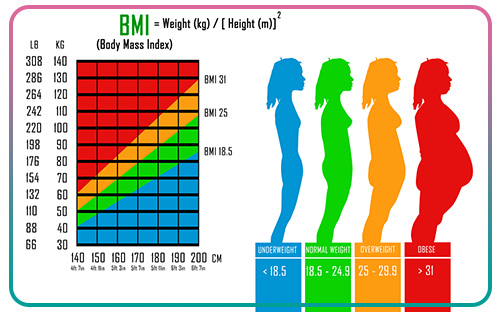
Having a balanced weight is only possible by changing your diet and exercising regularly. Therefore, women who are candidates for IVF should have a proper diet and exercise program in order to reach a proper weight before starting the treatment cycle.
Doctors recommend that you continue to exercise during IVF and after the transfer of the embryos. But keep in mind that running too much can transfer blood flow from the uterus to other parts of the body, which can interfere with pregnancy. So you should avoid running and replace it with walking and yoga.
No.3 Avoiding excessive consumption of caffeine
Some research shows that drinking 5 or more cups of coffee a day can reduce the chance of successful IVF by up to 50%. Therefore, experts recommend consuming a maximum of 1 to 2 cups or less of caffeinated beverages such as coffee and tea daily during the IVF cycle and pregnancy.
No.4 Avoid smoking and alcohol consumption
Various studies show that smoking and alcohol consumption in men reduce the quality of sperm for fertility and damage sperm DNA, which leads to health problems in the next generation. In addition, smoking and alcohol consumption in women reduce the likelihood of implantation of the embryos in the uterus and disrupt pregnancy. In addition, alcohol consumption may interfere with some fertility drugs. Therefore, smoking and alcohol consumption in men and women reduce the chances of successful IVF. (Learn more about the causes of male infertility)
No.5 Having a proper sleep

Sleeping at night repairs many organs and processes in the body. In addition, getting enough sleep increases the chances of the embryo’s implanting and can help with a healthy pregnancy and increase the success of IVF. Therefore, infertility experts recommend that people sleep between 7 and 8 hours at night. You can follow these tips to improve the quality of your sleep:
- Set your bedroom temperature between 16 and 19 degrees centigrade.
- Take a hot shower before bed.
- Avoid caffeinated beverages such as tea and coffee 4 to 6 hours before bedtime.
- Avoid food consumption 2 to 3 hours before bedtime.
- Put the lavender in your bedroom for comfort
- Listen to soothing music before going to bed.
- Do not use your TV, laptop, or mobile phone for 30 minutes before going to bed.
Your doctor may prescribe some medications and supplements to improve sleep quality that can help increase your chances of IVF success.
Studies show that sleeping after embryo transfer has no effect on embryo implantation and no specific method is recommended to increase the likelihood of successful treatment. The only noteworthy thing about how to sleep after the transfer of the fetus is that the woman should feel comfortable during sleep.
No.6 Consumption of pharmaceutical supplements
Taking some supplements can help with a healthy pregnancy and increase the success of IVF. Folic acid is one of the most important supplements before and after embryo transfer. It is usually recommended that women start taking folic acid three months before pregnancy and fetal transfer. Folic acid helps keep the embryo healthy and prevents brain damage and disorders in the fetal spine. In addition, folic acid increases the risk of twins. Learn more about what to do after the embryo transfer: Care after Embryo Transfer
Vitamin D is another medication supplement that helps with pregnancy health. Usually more than 40% of people; are deficient in vitamin D, which can reduce the chances of successful IVF. In addition, a deficiency of this vitamin in the mother can cause autism in the fetus.

Taking Supplements and Vitamins can contribute to IVF success and pregnancy health. But be aware, consult your doctor before taking supplements as some supplements may interfere with your fertility drugs.
No.7 Increasing sperm health
Sperm quality is one of the most important and influential factors in the success of IVF. Therefore, increasing sperm quality before the start of the IVF cycle is very important. Maintaining a healthy weight, exercising, avoiding smoking and alcohol, and getting enough sleep can improve sperm quality. In addition, keeping the temperature of the testicles cool affects the quality of the sperm, so hot baths, Jacuzzis, steam rooms, and bicycles should be avoided.
Dehydration is also one of the factors affecting the quality of sperm, so it is recommended to consume 2 liters of water a day. Dehydration is also one of the factors affecting the quality of sperm, so it is recommended to consume 2 liters of water a day. The consumption of some vitamins and supplements such as vitamin A, vitamin B12, vitamin C, selenium, zinc, etc. in consultation with a nutrition specialist can also help improve sperm quality. Learn more about the ways to boost sperm quality and how to make sperm stronger for pregnancy: ways to improve sperm quality
No.8 Abstinence from sexual intercourse 3 to 4 days before sperm collection
In the IVF process, it is recommended that the man abstains from ejaculation and sexual intercourse for 3 to 4 days before collecting sperm. No scientific study prohibits having sex after embryo transfer, but the sexual activity that intensifies the cervix, such as deep penetration, should be avoided.
No.9 Reducing stress and positive thinking
Infertility can be very stressful for couples, but it should be noted that reducing stress levels can provide better conditions for pregnancy. Many infertile couples need more than one IVF cycle to succeed in pregnancy, which may improve outcomes from cycle to cycle. A specialist doctor in any period can increase the chances of pregnancy by adjusting medications and using complementary techniques. Therefore, you should be patient and know that this situation is out of your control and you should not blame yourself. Positive thinking and meditation can help you reduce stress.

No.10 Avoid chemical substances
It is best to avoid chemicals and devices that contain them during the IVF process. Some of these are:
- Nail polish and some cosmetics, moisturizers, and soaps containing parabens
- Packaging of foods made from BPA and phenol
- Stain-resistant materials or non-stick cookware that contain perfluorinated compounds.
No.11 Choosing the proper doctor and medical center
In addition to improving lifestyle, choosing the proper doctor and treatment center also affects the success of IVF. An experienced doctor can correctly diagnose the problem of infertility and use the appropriate treatment methods to treat you. In addition, an advanced and well-equipped treatment center helps a lot in the infertility treatment process. HayatMedTour tries to provide the best infertility treatment services in Iran to infertile couples from all over the world by cooperating with the best fertility treatment doctors in Iran and also by cooperating with the best infertility treatment centers in Iran. In addition, the company, with careful travel planning and treatment process, allows you to focus only on treatment without worries and stress so that you can get the best results.
Contact us for more information about infertility treatment, and the cost of IVF in Iran, and consultation with specialists.

